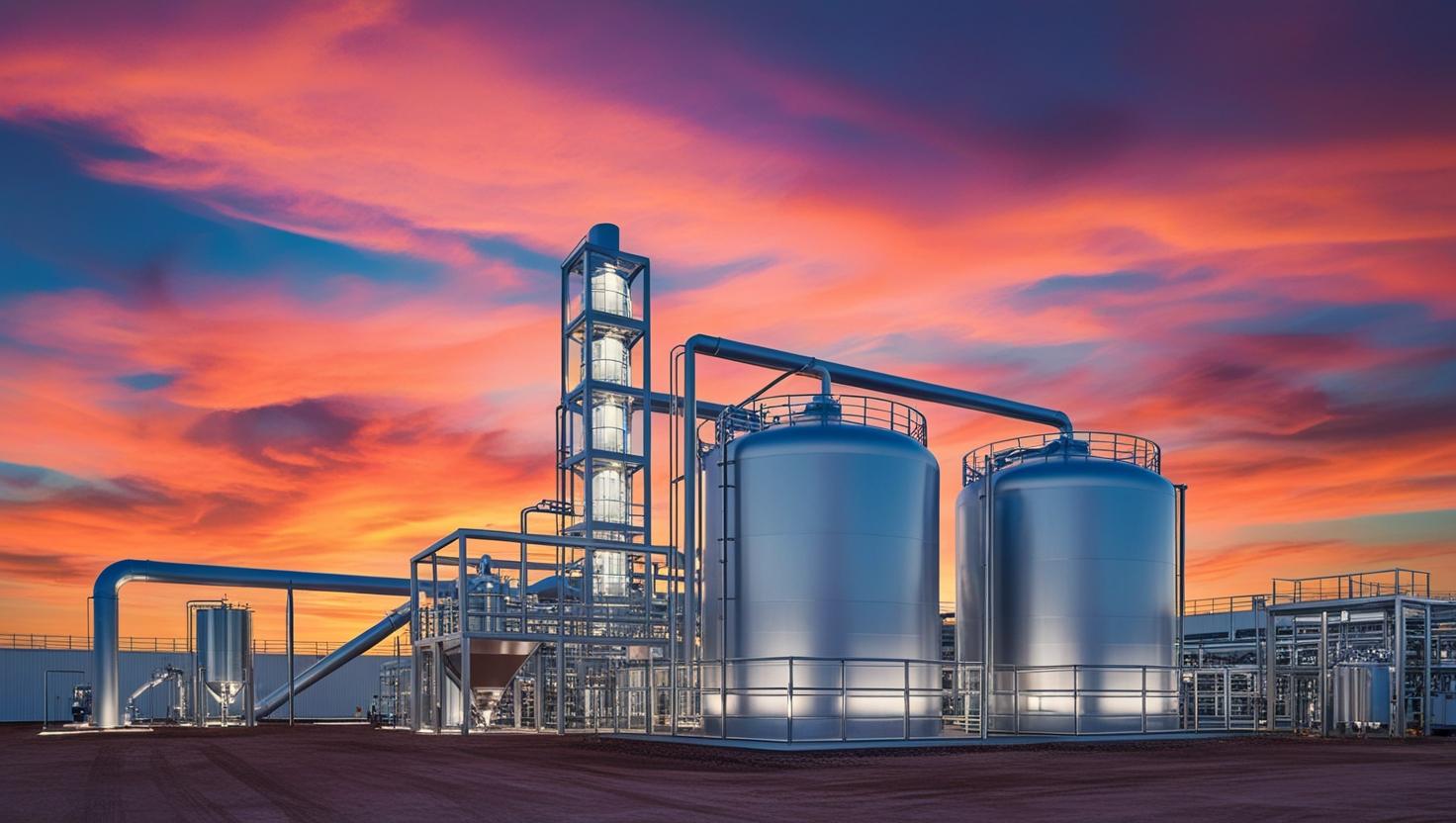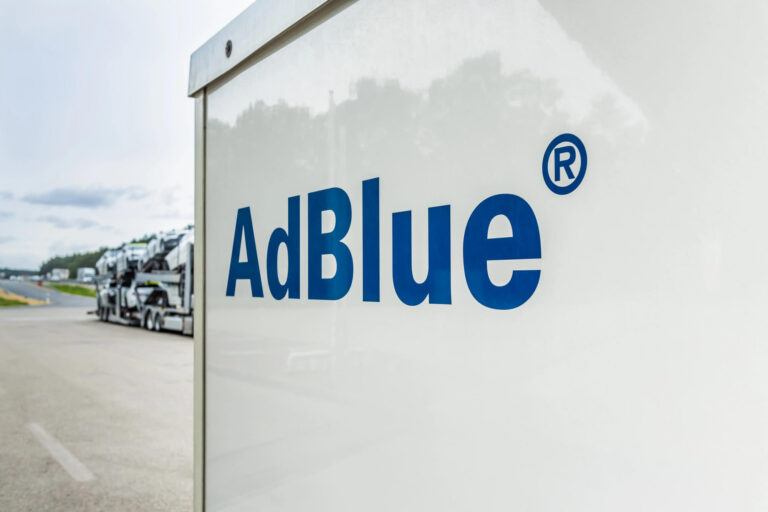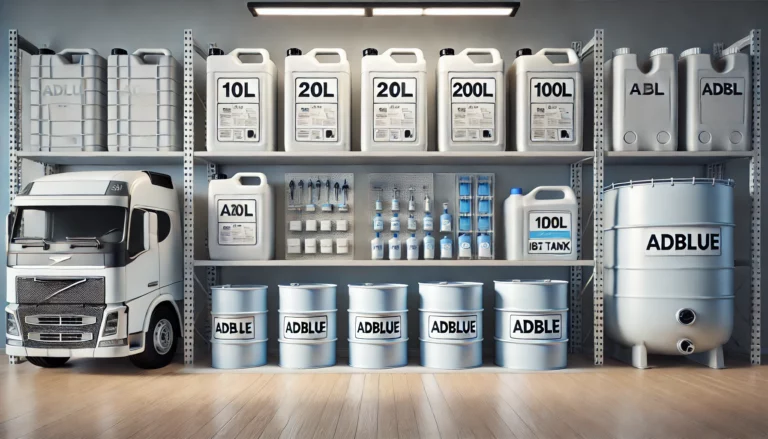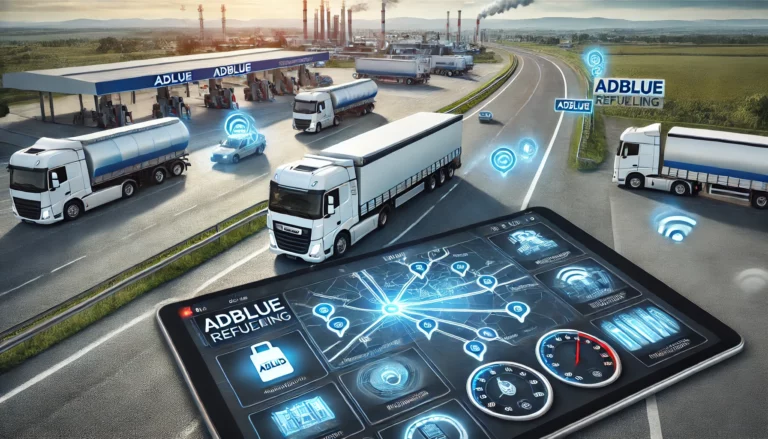Malaysia is actively embracing sustainable diesel technologies to curb emissions, meet environmental regulations, and transition toward cleaner energy.
For industrial vehicle operators and fleet owners, understanding both the technical and regulatory aspects of diesel sustainability is key.
This guide explains how AdBlue® and complementary diesel solutions are shaping the future of transport in Malaysia.
1. AdBlue® and SCR Technology
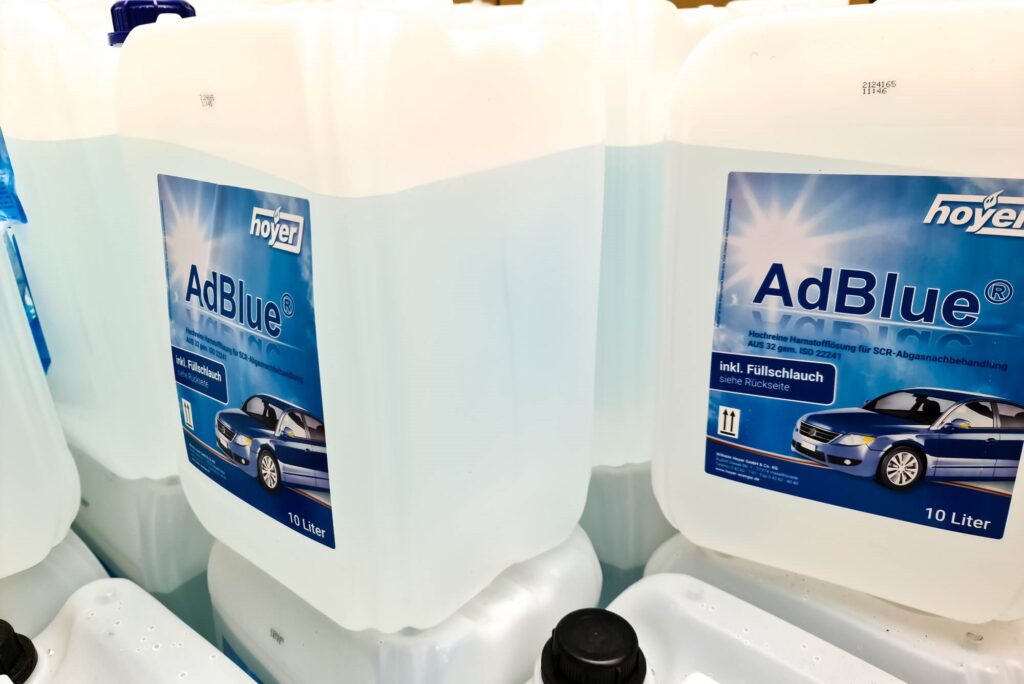
What AdBlue® Does for Diesel Engines
AdBlue® is an aqueous urea solution injected into the exhaust stream of diesel engines equipped with Selective Catalytic Reduction (SCR) systems.
The urea decomposes into ammonia, which reacts with nitrogen oxides (NOₓ) over the catalyst to form harmless nitrogen and water vapor.
This process enables heavy-duty vehicles to meet stringent emission limits—in particular, Malaysia’s move toward 2025 Euro 5 standards and soon-to-be-enforced Euro 6 limits.
AdBlue® is indispensable for meeting Malaysia’s 2025 Euro 5 standards.
Why This Matters for Air Quality
Using SCR technology, fleets can achieve an emission reduction of up to 85–90% for NOₓ under real-world driving conditions, a critical factor in improving air quality in urban centres such as Kuala Lumpur.
Regulatory Framework and Implementation Timeline
Current Requirements
Today in Malaysia, AdBlue® usage is mandated for several categories of heavy-duty diesel vehicles.
Trucks, buses, and specific off-highway vehicles that are subject to stringent emission testing must now integrate SCR systems with AdBlue® injection to meet the 2025 Euro 5 standards.
In some cases, light commercial vehicles are either partially regulated or subject to regional guidelines.
Upcoming Regulatory Deadlines and Enforcement Dates
Fleet operators should note that while the current focus is on Euro 5 compliance, the Malaysian government is preparing to enforce even stricter Euro 6 emission limits.
Preliminary announcements indicate that new enforcement measures will begin as early as early 2026.
During the transition, some legacy vehicle categories—particularly older models registered before a set cutoff date—may be granted temporary exemptions or transition periods.
However, manufacturers and fleet owners must remain vigilant by keeping up with updates from the Ministry of Transport and relevant environmental agencies.
Euro 5/Euro 6 Standards and AdBlue® Requirements
The implementation of Euro 5 regulations has made the use of AdBlue® indispensable for compliant diesel operation.
As the country prepares for Euro 6, which demands even lower emissions levels, the role of SCR systems with high-quality AdBlue® becomes even more critical.
The upcoming standards will likely extend the range of vehicles required to adopt AdBlue® technology, while also introducing potential transition arrangements for fleets currently in the market.
Practical Information for Fleet Owners
For fleet managers, integrating AdBlue® into your diesel operations involves more than simply retrofitting vehicles. Here are some practical considerations:
Specific AdBlue® Suppliers and Distribution Networks
BlueDiesel by AceRev:
A leading brand in Malaysia, BlueDiesel offers high-purity AdBlue® products. Their distribution network covers major urban centres including Kuala Lumpur, Penang, Johor, and other key industrial areas.
Petronas:
As a state-backed energy giant, Petronas has a well-established supply chain that includes dedicated AdBlue® distribution through its network of petrol stations and fleet service centres nationwide.
Shell:
Offering global expertise with local reach, Shell supplies quality diesel additives, including AdBlue®, at strategic service stations, especially in industrial hubs.
Local Independent Suppliers:
Several regional suppliers cater to niche markets and may provide customized delivery services to industrial zones. It is recommended to verify service coverage and quality certifications when selecting these vendors.
Storage Requirements and Shelf Life Considerations
Storage Conditions:
AdBlue® must be stored in a cool, dry, and well-ventilated area, away from direct sunlight.
In Malaysia’s tropical climate, where ambient temperatures can be high, it is vital to use storage tanks or containers with proper insulation and temperature control (ideally kept below 30°C).
Shelf Life:
When stored correctly in sealed, UV-resistant containers, AdBlue® typically has a shelf life of about 12 months.
However, due to the higher ambient temperatures in tropical regions, it is advisable for fleet owners to periodically inspect the product for degradation and adhere strictly to recommended storage guidelines.
Using temperature-controlled storage units can help in maintaining product integrity.
2. Biodiesel Blending
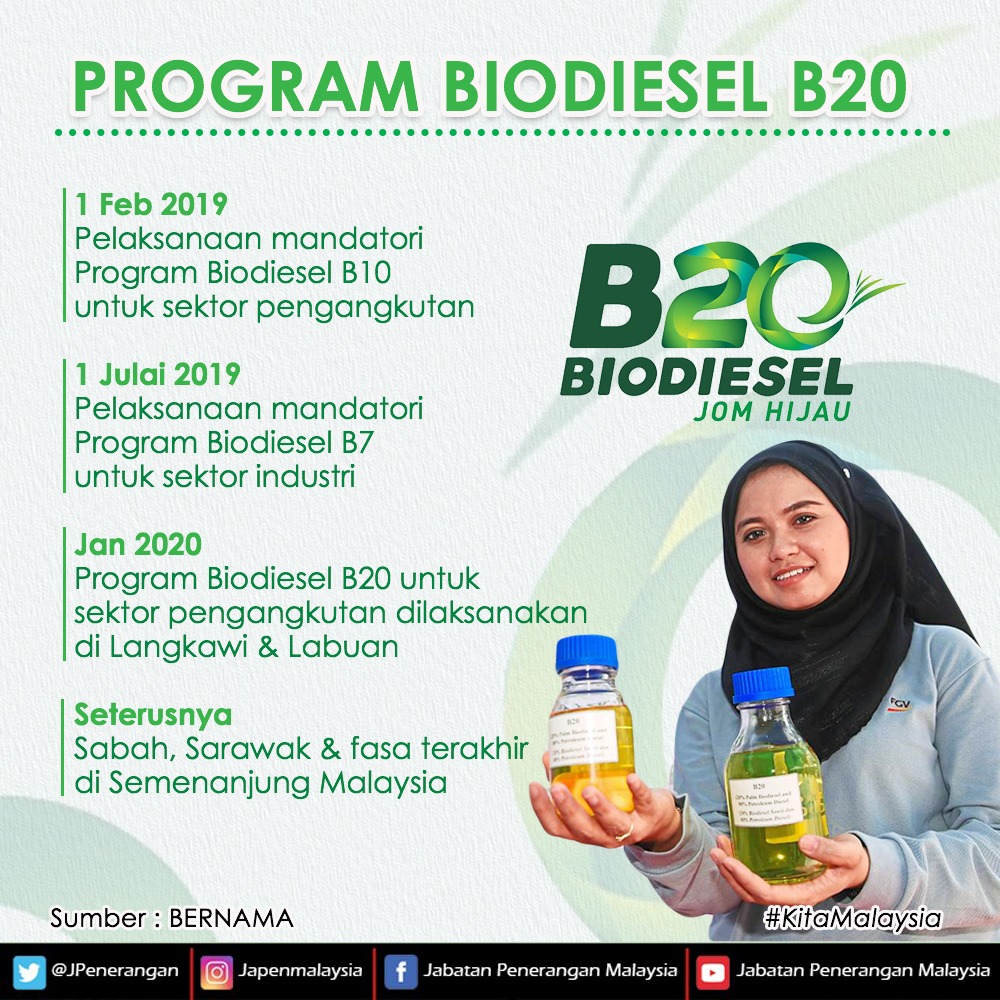
The Push for B20 Fuel
Malaysia has been rolling out the B20 biodiesel program, blending 20% palm methyl ester with regular diesel, in phased implementations since 2020.
Despite infrastructure challenges and rollout delays, the nationwide mandate is crucial for reducing fossil fuel consumption and supporting local palm oil producers.
Production, Consumption, and Policy Impact
Production & Consumption:
In 2022, Malaysia’s biodiesel production reached nearly 1 billion liters, while consumption in 2023 was around 998 million liters, indicating steady growth in renewable diesel use.
Government Incentives:
Tax incentives and crude palm oil export taxes have been structured to enhance local biofuel production, paving the way for a future with reduced emissions and improved energy sustainability.
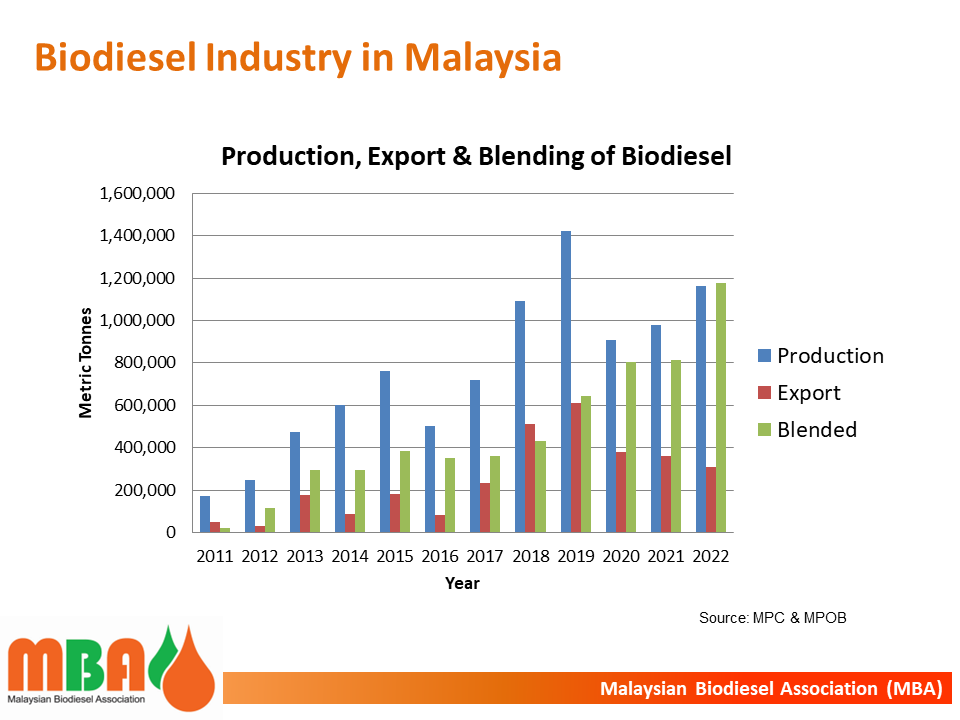
The Roadblock
The nationwide implementation of the B20 mandate has been delayed due to infrastructure challenges, including the need to upgrade blending facilities at fuel depots.
The government has allocated funds to support these upgrades, but progress has been slower than anticipated.
3. Renewable Diesel from Waste
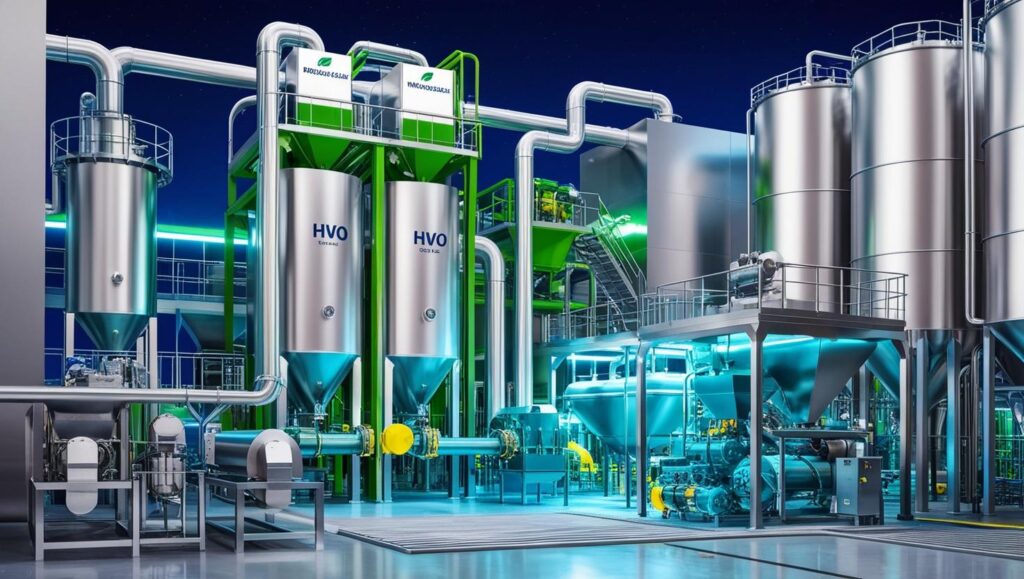
Turning Trash into Clean Fuel
Renewable diesel, such as Hydrotreated Vegetable Oil (HVO), is produced from waste feedstocks like used cooking oil (UCO) and palm oil mill effluent (POME).
This process not only converts waste into a sustainable diesel substitute but also supports the circular economy.
Expanding into Sustainable Aviation Fuel
Malaysia is also investing in Sustainable Aviation Fuel (SAF) production, utilizing similar waste materials to produce eco-friendly jet fuel. These efforts align with global trends toward reducing aviation’s carbon footprint.
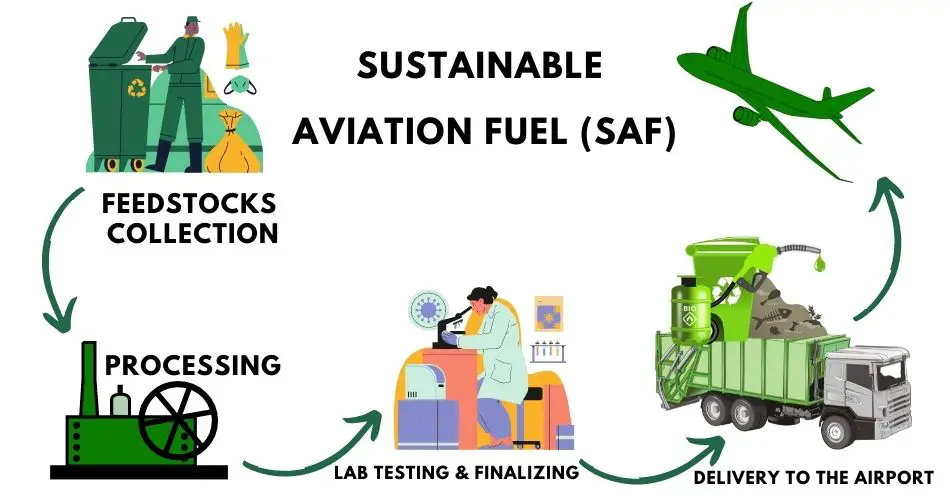
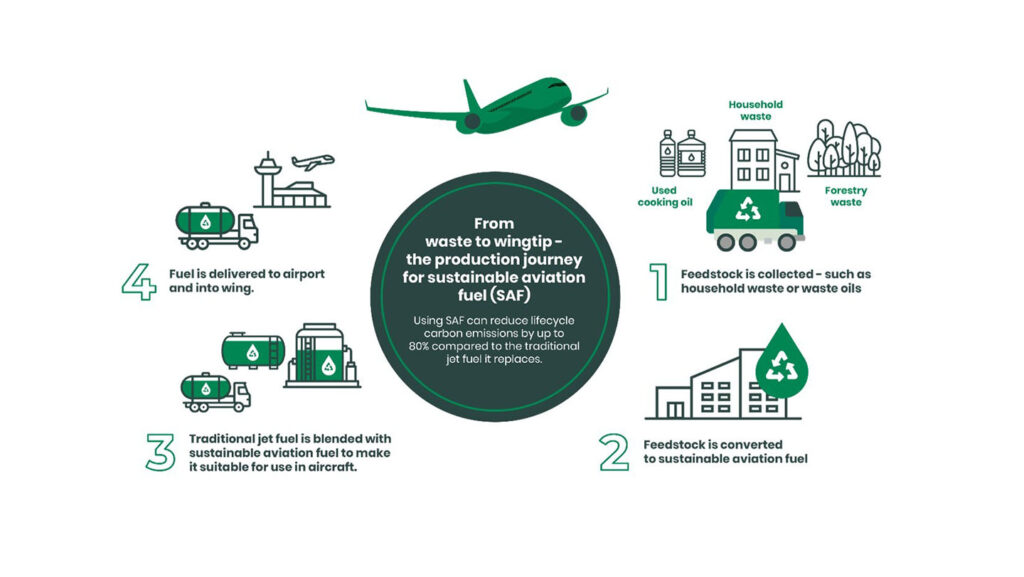
Government Policies Driving Change
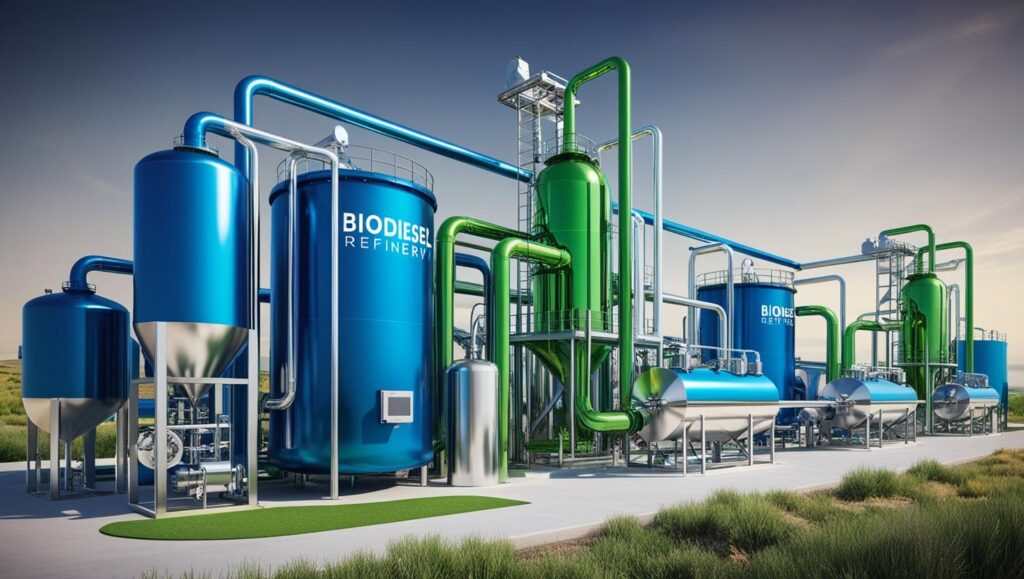
Incentives and Infrastructure Investments
The Malaysian government has implemented several policies to accelerate the adoption of biofuels. These include tax reforms, increased export taxes on crude palm oil, and funding for sustainable agricultural practices.
These measures support long-term industry sustainability while also addressing environmental impacts like deforestation and air pollution.
Collaborative Efforts for a Greener Future
Success in transitioning to sustainable diesel relies on collaboration between government bodies, fuel suppliers, and fleet operators.
Through coordinated efforts, Malaysia is poised to lead Southeast Asia in the shift towards cleaner transportation technologies.
Building a Cleaner Tomorrow, Step by Step
Malaysia’s sustainable diesel strategy is a multi-pronged approach combining advanced emission control technologies, renewable fuel alternatives, and supportive governmental policies.
With AdBlue® playing a central role in ensuring compliance with ever-stricter emission standards, fleet owners and industrial vehicle operators are encouraged to:
- Keep current with regulatory deadlines and transitional exemptions.
- Partner with reputable suppliers to ensure reliable AdBlue® sourcing.
- Invest in proper storage facilities to preserve product quality under tropical conditions.
By taking these proactive steps, Malaysia can lead the region in building a cleaner, more sustainable future for transportation.
References
- https://www.argusmedia.com/en/news-and-insights/latest-market-news/2428021-biodiesel-group-sees-higher-malaysian-blending-by-2025
- https://www.argusmedia.com/en/news-and-insights/latest-market-news/2288752-malaysia-to-roll-out-20pc-biofuels-mandate-in-2022
- https://www.mpoc.org.my/monthly-palm-oil-trade-statistics-2022/
- https://www.statista.com/statistics/1078494/malaysia-biodiesel-consumption/
- https://bepi.mpob.gov.my/images/overview/Overview2022.pdf
- https://sea.ub-speeda.com/asean-insights/industry-reports/biofuel-malaysia/

